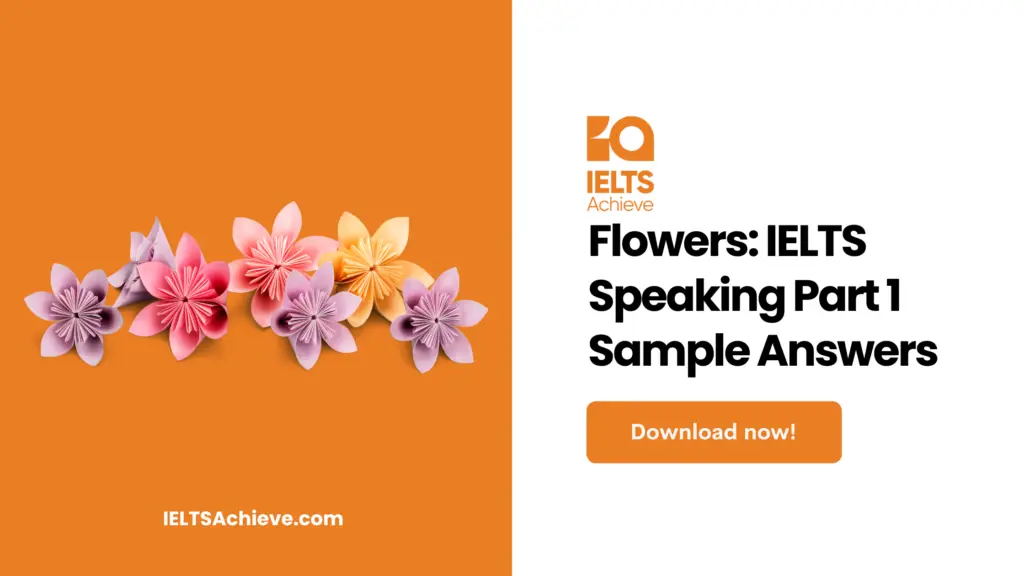
Do you like flowers? (Why?)
Yes, I am fond of flowers. Their vibrant colours, delicate petals, and pleasant fragrances create a captivating sensory experience that brings a sense of beauty and tranquillity to my surroundings.
Which/What is your favourite flower?
My favourite flower is the sunflower. I am enchanted by its bold yellow petals and how it symbolizes positivity, vitality, and the power of the sun. Sunflowers never fail to brighten my day.
Do you think flowers are important?
Absolutely, flowers hold great importance. They not only serve as nature’s artwork but also have cultural, emotional, and symbolic significance across various traditions and ceremonies worldwide.
Are flowers important in your culture? (Give examples)
Yes, flowers play a significant role in my culture. For instance, during weddings, bouquets and floral decorations symbolize love, purity, and new beginnings. Additionally, festivals and religious ceremonies often incorporate specific flowers with symbolic meanings to convey reverence and spirituality.
Do people in your country ever use flowers for special occasions?
Yes, flowers are commonly used for special occasions in my country. They are often given as gifts for birthdays, anniversaries, and graduations, and to express condolences during funerals. Flowers add an extra touch of thoughtfulness and convey heartfelt emotions.
What are the occasions when people give or receive flowers?
People give and receive flowers on various occasions such as birthdays, Valentine’s Day, Mother’s Day, weddings, and anniversaries, and to congratulate someone on their achievements or success.
In your country, do people (ever) give flowers as a gift?
Yes, giving flowers as a gift is a common practice in my country. It is a gesture of appreciation, love, or admiration. Flowers have the power to convey heartfelt sentiments and make the recipient feel special.
When was the last time you gave flowers to someone?
The last time I gave flowers to someone was on my friend’s birthday. I surprised her with a bouquet of her favourite flowers, and the joy on her face made it all worthwhile.
Here are the vocabulary words and their definitions for the answers:
Delicate (adjective): Easily damaged or broken; fragile.
Example: The delicate petals of the rose required gentle handling.
Captivating (adjective): Attracting and holding interest or attention; fascinating.
Example: The captivating aroma of the jasmine flowers filled the room.
Tranquillity (noun): The state of being calm and peaceful.
Example: Sitting in the garden surrounded by blooming flowers brought a sense of tranquillity.
Vibrant (adjective): Full of energy, brightness, and enthusiasm.
Example: The vibrant colors of the tulips added a lively touch to the garden.
Symbolize (verb): Represent or stand for something else.
Example: The white lily symbolizes purity and innocence.
Significance (noun): The quality of being important or having meaning.
Example: The exchange of flowers at a wedding holds great cultural significance.
Reverence (noun): Deep respect or admiration for someone or something.
Example: The offering of flowers at the temple is an act of reverence and devotion.
Sentiments (noun): Thoughts, feelings, or emotions.
Example: The bouquet of roses conveyed romantic sentiments on Valentine’s Day.
Admiration (noun): A feeling of respect and approval.
Example: She received a bouquet of flowers as a token of admiration for her achievements.
Gesture (noun): A movement or action expressing an idea, sentiment, or intention.
Example: Giving flowers as a gift is a thoughtful gesture to express gratitude.
